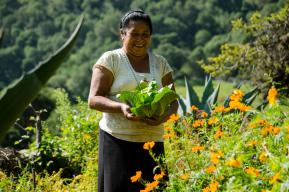News
Central America acts for the status of artists and cultural professionals

The eight countries that make up the Central American Integration System (SICA) - Belize, Costa Rica, El Salvador, Guatemala, Honduras, Nicaragua, Panama and the Dominican Republic - are working with UNESCO to recognize, protect and promote the economic and social rights of people working in the arts and culture.
Since 2022, UNESCO has collaborated with the Research, Art and Transmedia (iAT) program of the National University of Costa Rica (UNA) in the implementation of a project aimed at developing a public policy proposal regarding decent working conditions for young artists. Through a participatory process that involved consultations with young people from different parts of the country, research and artistic creation activities, a series of proposals were formulated and submitted to the Ministry of Culture and Youth of Costa Rica for consideration when formulating cultural policies.
The recommendations include establishing a measurable definition of what it means to be an artist; promoting affirmative actions in terms of gender, age and locality for the public hiring of artists; as well as public insurance conditions accessible to these sectors; improving artists' access to public cultural infrastructure; reducing the gaps between artists in urban and rural areas; and strengthening the articulation between the artistic and educational sectors through the approach of artistic and cultural education.
The results of this project were announced on Friday, September 22, 2023, at an event in San José that included the presentation of the interim show "Possible Worlds", produced by young artists from UNA in the context of this project, as an artistic reflection on this problem.
This event was also the occasion to publicly announce the launching of a new project supported by the UNESCO/Aschberg program, through which the Central American Educational and Cultural Coordination (CECC/SICA) seeks to create a regional policy for the protection of artists and cultural professionals in the SICA region.
This project also includes actions in the eight SICA countries to strengthen the capacities of government institutions and civil society, generate data and information on the social and labor conditions of the artistic sectors and raise public awareness of the role of these sectors in society and their impact on the achievement of the 2030 Sustainable Development Goals.
The UNESCO-Aschberg Program seeks to support creativity and artistic diversity around the world through the implementation of the 2005 Convention on the Protection and Promotion of the Diversity of Cultural Expressions and the 1980 Recommendation concerning the Status of the Artist. The Program provides technical assistance, tools and capacities for the formulation of public policies that foster environments conducive to creativity.









